The biggest Korean holidays are Seollal (Lunar New Year’s Day), Chuseok (Korean Thanksgiving), and Jeongwol Daeboreum (Great Full Moon Day). On Seollal and Chuseok, family members get together for a memorial service to their ancestors and visit close relatives. Popular holiday foods are galbijjim (braised short ribs), japchae (stir-fried glass noodles and vegetables), tteok (rice cakes) and hangwa (traditional Korean sweets). Regardless, each holiday has a special food for the occasion.
TTEOKGUK
Seollal (Lunar New Year’s Day, the first day of the first lunar month)
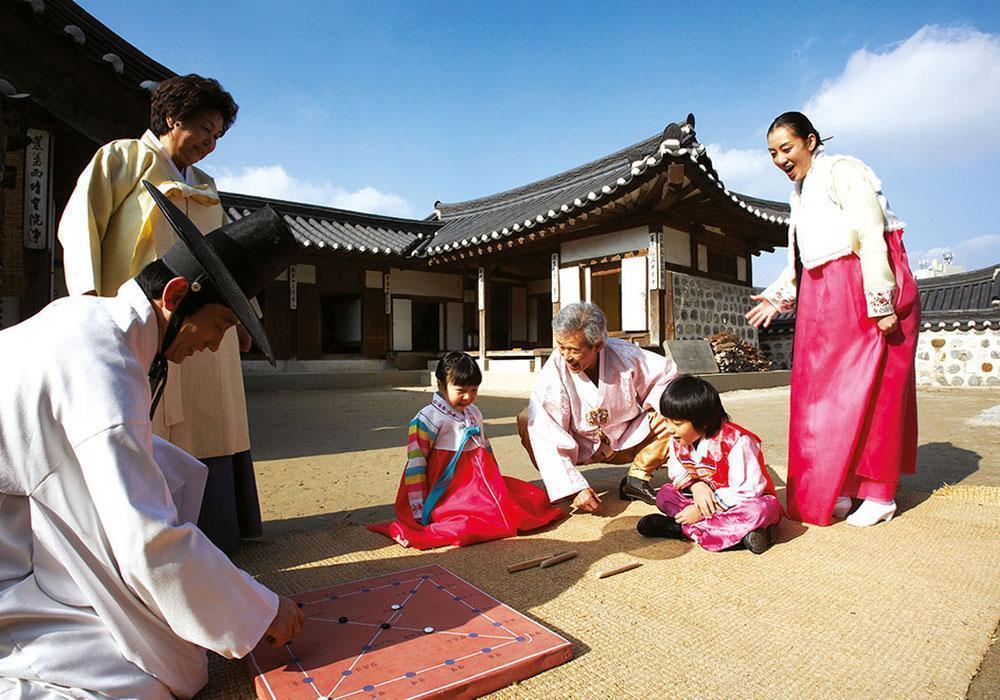

In Korea, Seollal is a major holiday that marks the beginning of a New Year. Dressed in their finest New Year clothes, everyone in the family gathers to perform the ancestral ritual. A key moment is when the younger family members bow before the senior members of the family.
Following the bowing the seniors offer words of blessing and New Year’s money to the children. On this day, people eat tteokguk, or sliced rice cake soup, The oval rice cake slices symbolize the sun, as well as a fortuitous beginning of the New Year. Custom has it that one becomes a year older after eating a bowl of tteokguk. It is also said that this soup brings good fortune because the rice cake slices resemble coins.
OGOKBAP
Jeongwol Daeboreum (Great Full Moon Day, the fifteenth day of the first lunar month)
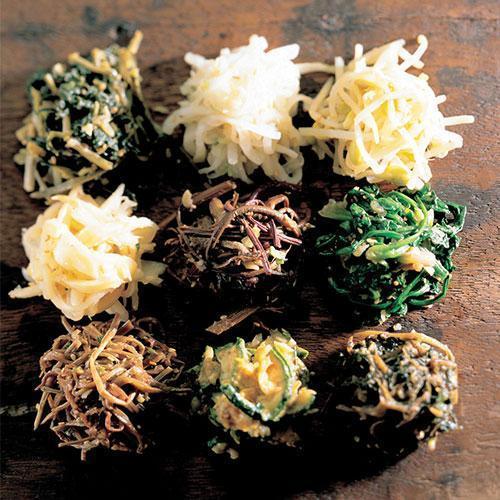
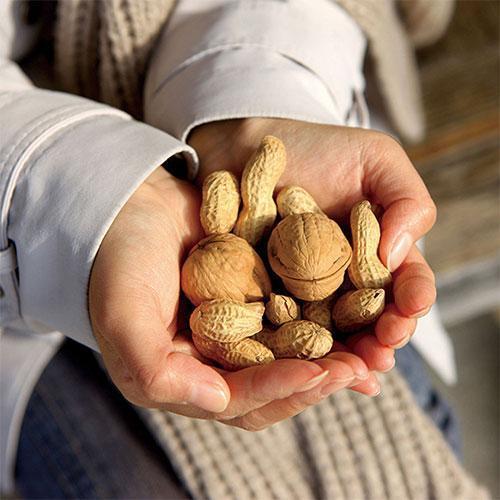
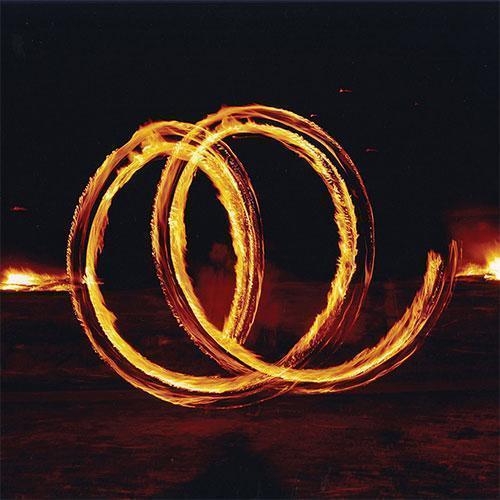
In the first month of the year, people perform rites to the guardian spirits of their community, asking the spirits to ensure health and happiness and help avert disasters and bad luck in the coming year. On the first full moon day, everyone eats ogokbap, which is thought to ensure longevity. Ogokbap, which means steamed five-grain rice, is made with sticky rice, glutinous sorghum, red beans, glutinous millet, and beans. Accompanying ogokbap is an assortment of namul, or salad, and on the morning of Jeongwol Daeboreum, people eat nuts such as chestnuts, walnuts, ginkgo nuts and peanuts to wish for a healthy year. Bureom refers to the assortment of nuts, and also the tradition of eating nuts.
SONGPYEON
Chuseok (Korean Thanksgiving, the fifteenth day of the eighth lunar month)
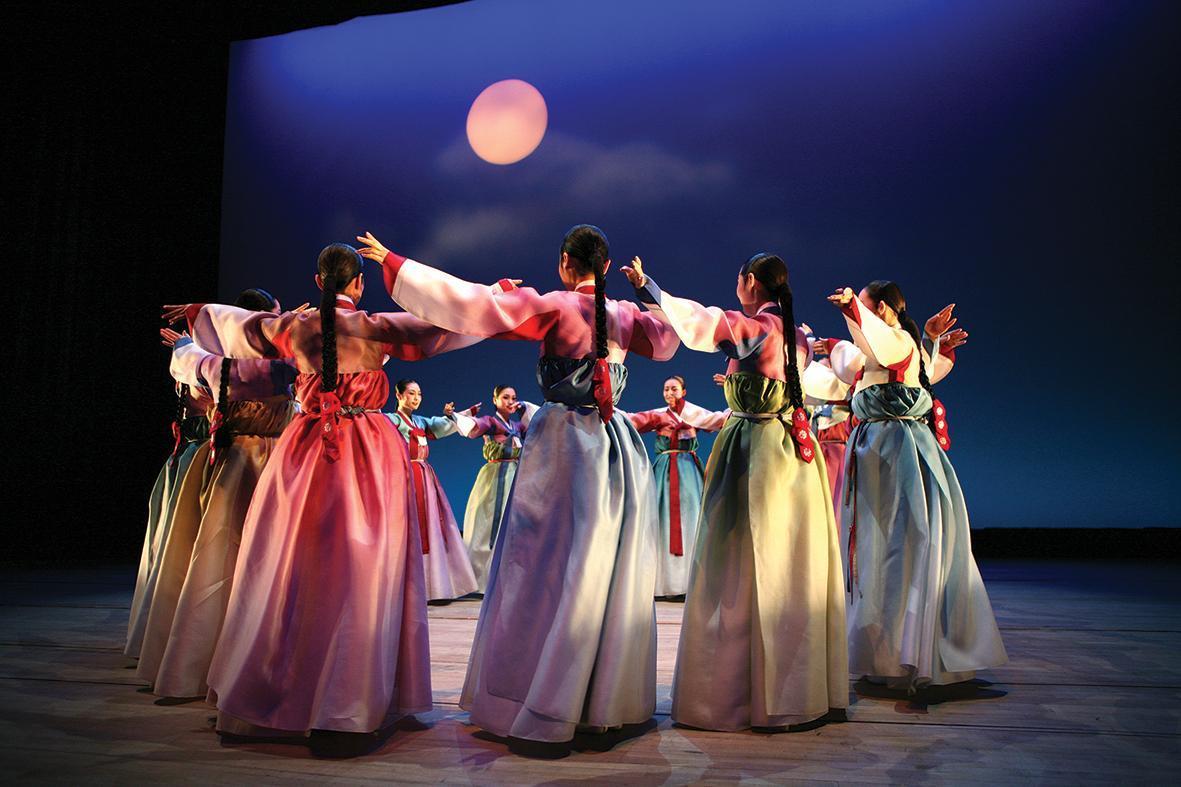
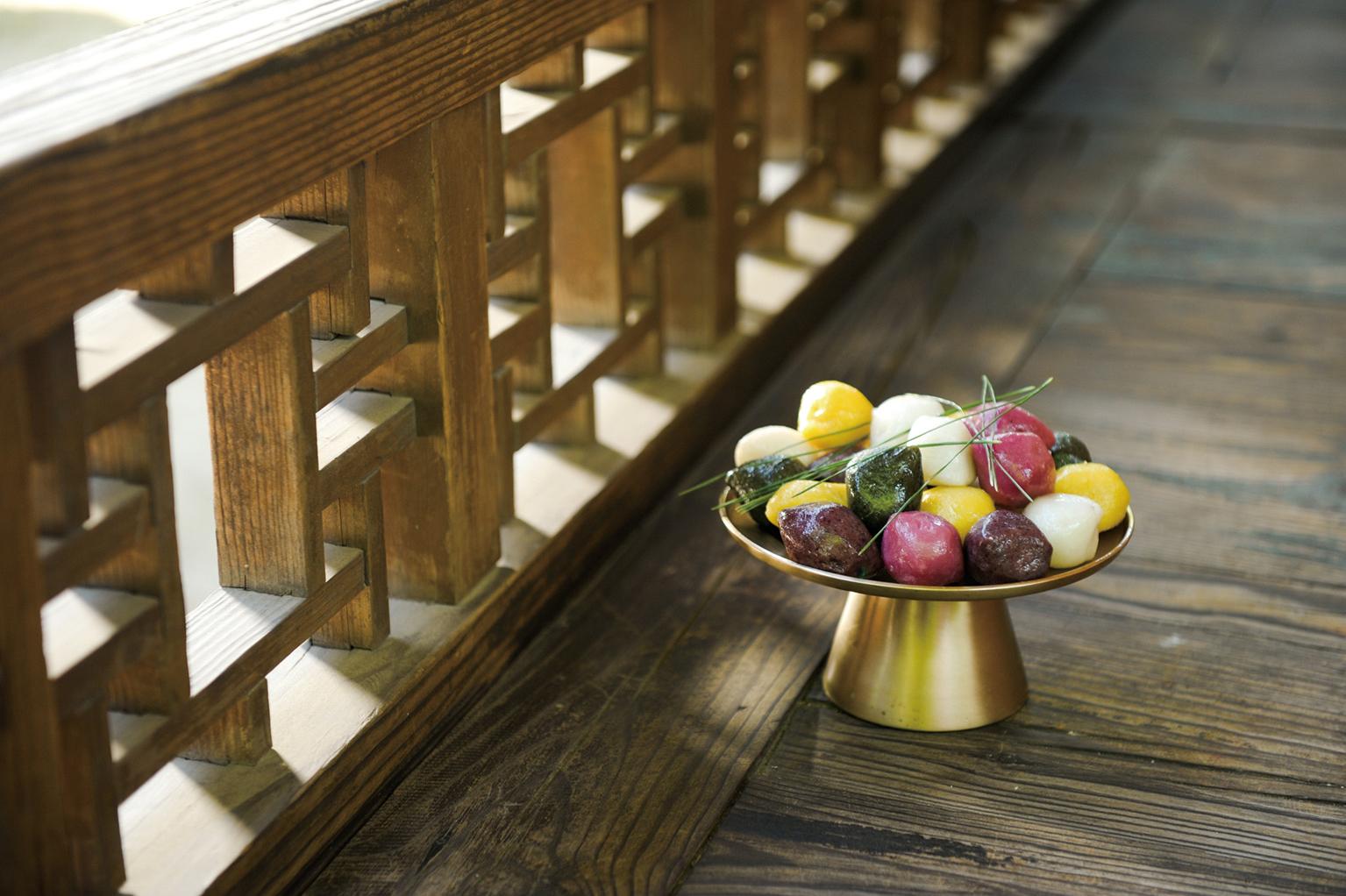
Celebrated on the fifteenth day of the eighth lunar month, Chuseok literally means autumn night with great moonlight. The Korean proverb “Be not more, nor less, but just like Hangawi (another word for Chuseok)” suggests that this holiday falls during the best time of the year, with perfect weather and abundant food. Following the harvest of fruits and grains, people make songpyeon (half-moon rice cakes) in appreciation of their ancestors, and the heavens for the bountiful harvest. All of the family members gather around the table to make half-moon shaped rice cakes. Flour milled from newly harvested rice is moistened with salt water to form the dough, which is shaped into small half-moons, filled with a paste of mung bean, honeyed sesame, chestnuts, or other fillings, and steamed on a bed of pine needles.


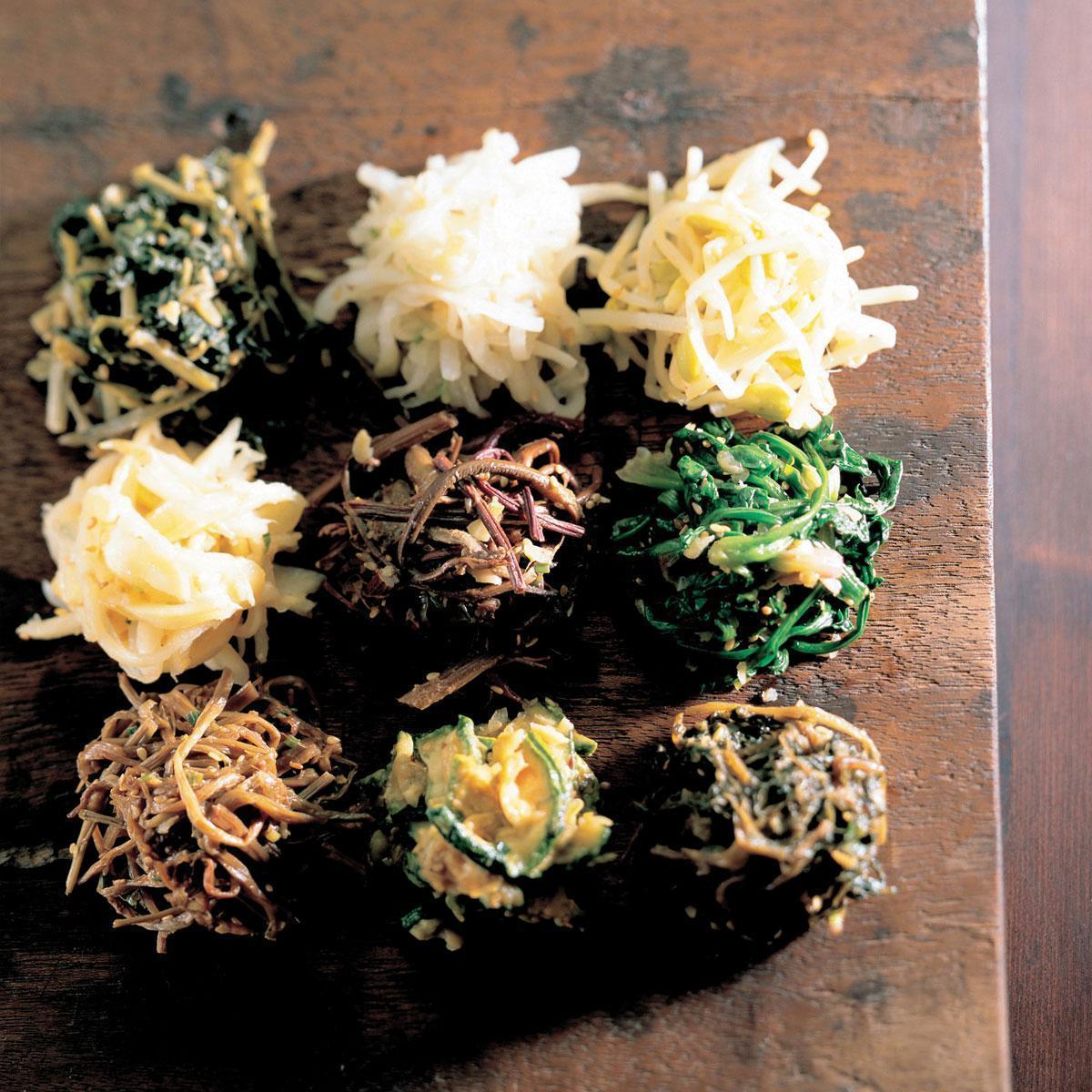
![[A ZONE] Gangnam Food Spot](https://m.dgram.co.kr/wp-content/uploads/2020/09/A존-알래스카3-특성이미지_S-218x150.jpg)
![[A ZONE] Gangnam Life Style](https://m.dgram.co.kr/wp-content/uploads/2020/09/로우클래식1-특성이미지_S-218x150.jpg)






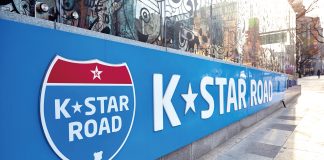

![[A ZONE] Gangnam Food Spot](https://m.dgram.co.kr/wp-content/uploads/2020/09/A존-알래스카3-특성이미지_S-324x160.jpg)
![[A ZONE] Gangnam Life Style](https://m.dgram.co.kr/wp-content/uploads/2020/09/로우클래식1-특성이미지_S-324x160.jpg)




